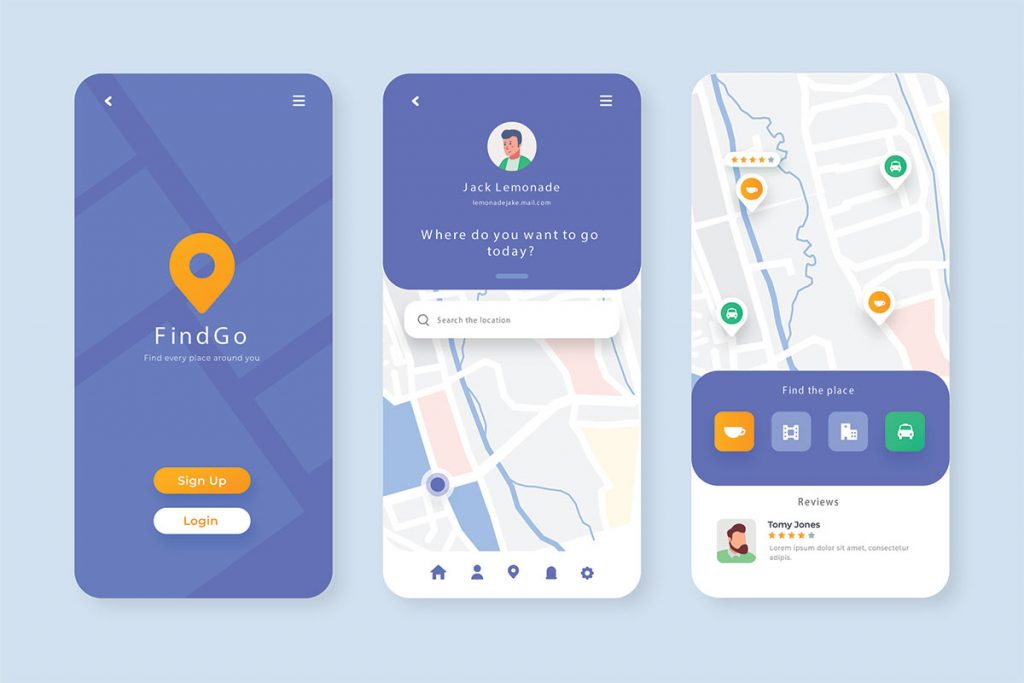Increasingly, in recent times, many companies are questioning the best way to gain visibility and thereby increase revenue in the vast world of the Internet. Certainly, developing an application for their business is important, and analyzing the data on the spread of smartphones and tablets, it might even be considered necessary. It is also important to consider the variety of operating systems and the most used devices. The mobile app must be developed for both Android and iOS systems and made available on Google Play and the Apple Store. Additionally, in some specific cases, it is important that it also works on tablets or certain specific models of smartphones.
Business Management Apps
Creating a business app first and foremost increases the brand’s visibility, making it much easier for the public to remember. An application allows for a much stronger, recognizable digital image that is always “in sight” of people potentially interested in the services offered. Greater visibility also translates into a clearer, distinguishable, and modern brand identity that keeps pace with new technologies and market demands. A corporate portal app can thus increase the brand’s popularity and enhance its value, making it perceived not only as distinguishable from competitors but also as smart and capable of leveraging the competitive advantage offered by new technologies.
Moreover, being always accessible and representing a direct communication channel, a business app greatly contributes to customer loyalty. With just one touch, users can connect with the brand while the company can send real-time information and stay in contact with its potential customers 24/7. A business mobile app can be equipped with various functionalities such as news feeds, messaging tools, subscription and booking forms, and search tools.
Employee Business Apps
While the benefits of externally used apps are numerous and well-understood, those of internally used apps are equally important.
Apps can significantly contribute to optimizing internal processes within the company by offering more versatile and functional solutions for managing certain activities.
What Can an App Do for a Company and Its Employees?
For example, it can:
- Improve internal communication: Simplify the exchange of information and documents between company departments, keeping everyone updated.
- Better manage orders and reservations: An internal business management app can facilitate the work of salespeople who can send customer orders to the relevant department with a click.
- Create catalogs and manage inventories: Business management apps allow the creation of product catalogs that can be consulted offline from anywhere and also keep stock levels under control.
- Optimize customer service: Customer support is crucial for any company, and apps can offer a much faster and more functional customer service, significantly improving reputation.
- Facilitate employee training processes: Apps are particularly useful for staff training, offering flexibility and monitoring that are hard to match with traditional classroom courses.
- Monitor reviews and social interactions: In terms of reputation, it is important to know what users think of the brand. Apps can monitor customer reviews and survey social interactions, helping to understand what customers appreciate and what needs improvement.
The Best Business Apps of 2024
Among the latest business apps is Atlassian, a collaboration tool that combines messaging, video calls, and other communication tools. Its repertoire includes the Focus Mode to eliminate user distractions from notifications and messages and the “Actions and Decisions” function to categorize, assign, and save specific items. Notifications are customizable, images can be annotated, and files can be embedded.
Spark, in its free version, offers in-app calls, display sharing, up to 5 GB for file sharing, and integration with up to 10 apps. For task management, there is Asana, a business management app that allows the creation of lists to add and organize work. Reminders, tasks, ideas, and more can be included, along with the ability to share with teams to discuss and develop projects and communicate updates on individual and common activities.
It tracks employees’ commitments, including priority levels, deadlines, schedules, notes, and reminders. The platform organizes a calendar that can be shared with colleagues and has a geolocation feature to send reminders based on the user’s location. The app aims to allow employees to access files in their folders from any device and, most importantly, to share them. This facilitates workflow, ensuring everyone always works with the desired files in their most updated version, synchronized with their colleagues’ versions. The business version offers more storage space and enhances document security compared to the free version.








